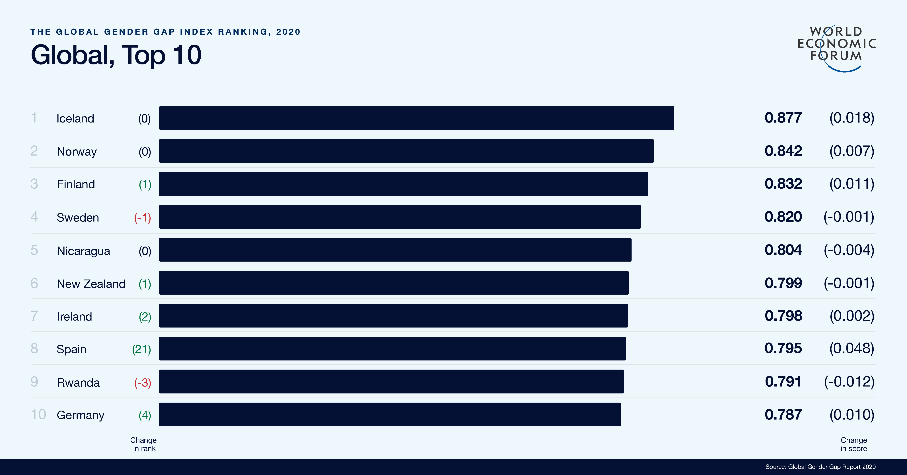New report says that despite year-over-year improvement, more needs to be done

Economic gender inequality is here for the foreseeable future unless we do more to close it according to a new report.
The World Economic Forum says that it will take a staggering 257 years to close the gap between men and women in terms of economic opportunity, up from the 208 years it calculated in 2018.
Among the reasons for the painfully slow – and currently backwards – trajectory of economic gender equality are the lower levels of women in managerial or leadership positions, wage stagnation, labour force participation and income which is often below that earned by men.
Women are also more likely than men to be in roles that have been affected by automation such as retail and white collar clerical positions.
Additionally, women are less likely to be entering the professions where wages have been growing the most, especially those connected with technology.
For example, WEF’s research in conjunction with LinkedIn found that in growing industries such as “cloud computing” only 12% of all professionals are women; in “engineering” it’s a 15% share, and in “Data and AI” just 26%.
Women do outnumber men in two fast-growing job clusters, “content production” and “people and culture”.
Access to capital
Women are also less able to access capital to drive their entrepreneurship and are more often involved in care and voluntary activities.
“Supporting gender parity is critical to ensuring strong, cohesive and resilient societies around the world. For business, too, diversity will be an essential element to demonstrate that stakeholder capitalism is the guiding principle. This is why the World Economic Forum is working with business and government stakeholders to accelerate efforts to close the gender gap,” said Klaus Schwab, Founder and Executive Chairman of the World Economic Forum.
Improvement in some areas
WEF’s new report looks at the gender gap across health, education, work and politics and reveals that it has closed slightly over the past year – from 108 years to 99.5 years.
This has been helped by more women participating in politics but even in this area it will take 95 years to reach parity.
Across these metrics, Canada is lagging.
Nordic countries continue to lead the way to gender parity. Iceland (87.7%) remains the world’s most gender-equal country, followed by Norway (2nd, 84.2%), Finland (3rd, 83.2%) and Sweden (4th, 82.0%).
The North America region has the United States (72.4%) in 53rd place and Canada (77.2%) in 19th. Both countries’ performances are stalling, especially in terms of economic participation and opportunity. At this rate it will take 151 years to close the gap.
“To get to parity in the next decade instead of the next two centuries, we will need to mobilize resources, focus leadership attention and commit to targets across the public and private sectors. Business-as-usual will not close the gender gap – we must take action to achieve the virtuous cycle that parity creates in economies and societies,” said Saadia Zahidi, Head of the Centre for the New Economy and Society and Member of the Managing Board, World Economic Forum.

Image credit: World Economic Forum



